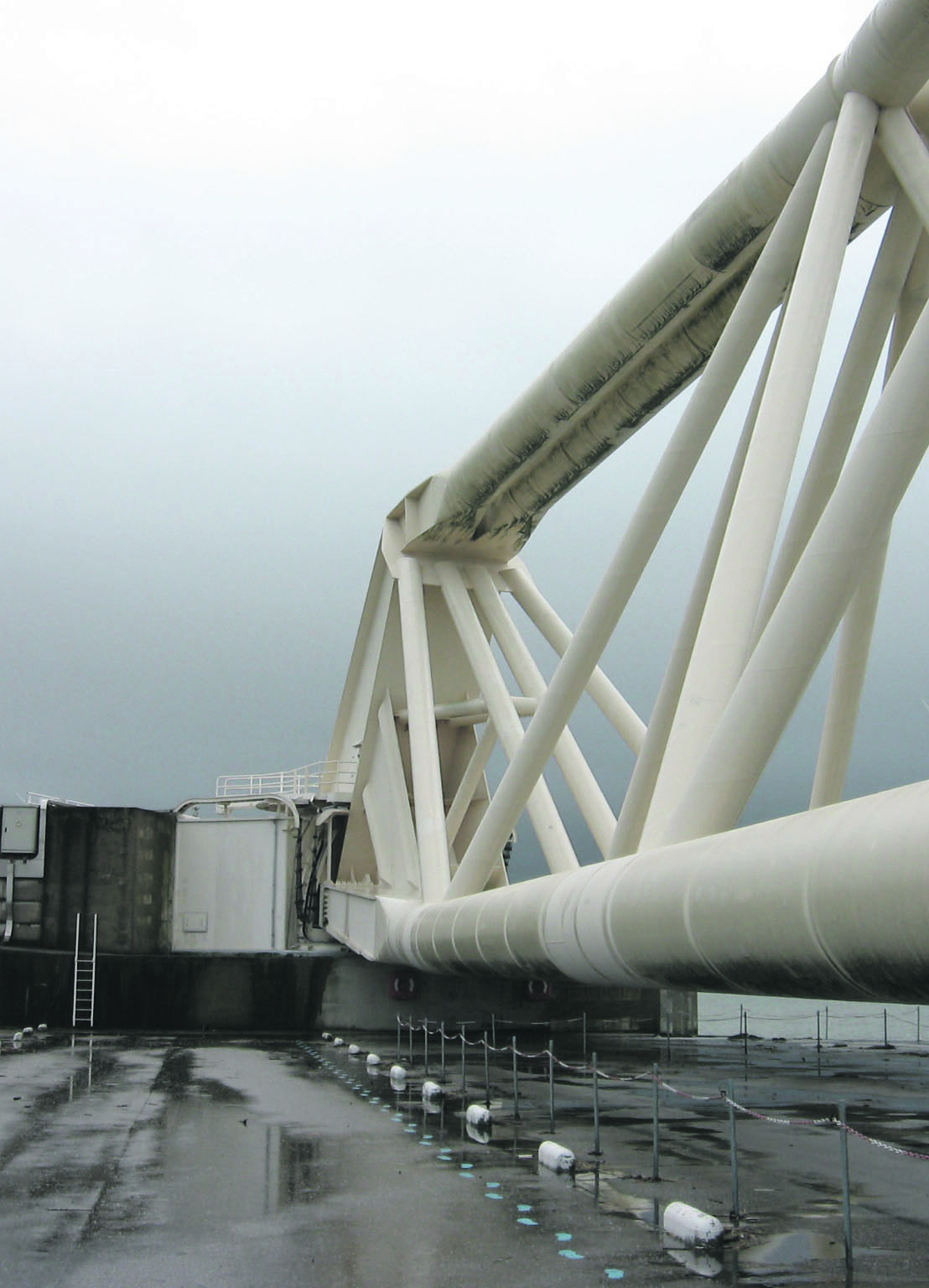Test closure
An enormous movable barrage, called the Maeslandtkering, will drift into the Nieuwe Waterweg next Saturday, 24 September.
The barrage will close off the Port of Rotterdam from the North Sea during a yearly test conducted the start of the storm season. The 450 million euros construction consists of two hinged, floating doors that can be sunk in the middle of the waterway. Their ball bearings – 10 meters in diameter – are the largest in the world. The adjacent Hartelkering, south of the Nieuwe Waterweg, will also be shut, but the visitors centre near Hoek van Holland is open from 9:00 a.m. Closure starts at 12:00 a.m.
Als hij de vier beamers gezamenlijk één groot beeld laat projecteren, is te zien dat teksten niet goed in elkaar overlopen bij de overgang tussen de vier schermen. Bovendien is de rechterhelft van het beeld donkerder dan de linkerhelft. “Het contrast van het scherm haalt het niet bij wat je nodig hebt om het leesbaar te maken”, zegt Van der Meijs.
Tevens blijkt dat een hulpstuk op het bord – nodig voor het schrijven op de onderste twee smartboards – hindert bij het lezen van teksten. Dat hulpstuk moet op de smartboards worden bevestigd om de elektronische pen aan te sturen, maar dit systeem is niet goed gekalibreerd.
Wat dit betekent, wordt duidelijk als Van der Meijs de elektronische pen demonstreert: zijn tekst verschijnt met vertraging op het bord, op een andere plek dan waar hij schrijft. “Het is ontzettend moeilijk om nette letters te schrijven.”
Study awards
During a festive meeting in Rotterdam last Saturday, the Batavian Association (Bataafsch Genootschap) gave awards to several TU Delft and Rotterdam students for their excellent theses. Rotterdam’s mayor, Ahmed Aboutaleb, who is also Praeses Magnificus of the honorary association, presented the prizes. Karel Wagner (MSc), of the faculty of 3mE, received the study prize (a certificate and 750.00 euros) for his 2009 thesis on an algorithm that optimises configurations of drilling ships in the design phase. The other Delft study prize went to Tim van Oijen (MSc), who graduated from 3mE in 2010, for his discovery that robots walk best if their centre of gravity is located just above the hips. The PhD thesis prize was awarded to Dr Johan van den Bergh, who worked on zeolite membranes, used in separation processes. The combination of fundamental science (11 papers and nearly 100 citations) and societal relevance was what won the jury over, said Professor Frans van der Helm.
See video on delta.tudelft.nl
Tuning in
Finding your way around as a cyclist isn’t always easy. You can’t continuously consult a satnav system, so Matthijs Zwinderman, of Eindhoven University of Technology, came up with a solution, or so the online magazine wired.com heralds. Zwinderman developed a smartphone app called, “Oh Music, Where Art Thou?”, which works as follows: You set a destination and then put on your
headphones to listen to music. As you ride, the music shifts from left to right to direct you towards your goal.



Comments are closed.